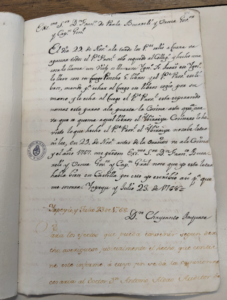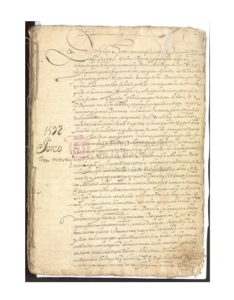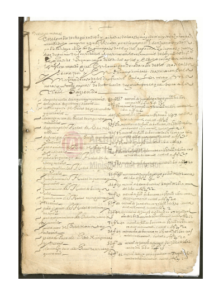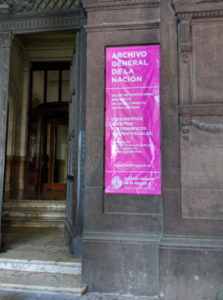In another in our continuing series of “Postcards,” Dr. Elizabeth Penry sends news from her research in Rome.
Tag Archives: Elizabeth Penry
Postcard from Rome and the Jesuit Archives
Comments Off on Postcard from Rome and the Jesuit Archives
Filed under Faculty News, Postcards
A Postcard from Argentina
What do historians do over spring break? Dr. Elizabeth Penry, Associate Chair for Undergraduate Studies, traveled to Argentina for research and sent us this postcard from Buenos Aires.
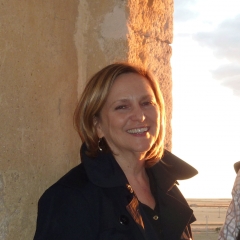
With the support of a generous Faculty Research Grant from Fordham University, I have begun work on a new project on indigenous literacy practices in the colonial Andes (16th – 18th centuries). Over the spring break, I traveled to Buenos Aires to work in the Archivo General de la Nación. The geographic focus of my work is that region of the Andes that became the modern nation of Bolivia. Part of the Inca empire at the time of the Spanish invasion, it formed the southern region of the Viceroyalty of Peru for over 200 years until it was incorporated into the new Viceroyalty of the Rio de la Plata, headquartered in Buenos Aires, at the end of the 18th century.
A 1768 Complaint about Book Burning
Finding information about indigenous literacy is a little like hunting for a needle in a haystack; there isn’t any division in any colonial archive dedicated to the topic. But in addition to 250 years of detailed records of royal orders, the Argentine national archives are particularly rich with census and economic records for the region, and sometimes surprising information turns up. Orders coming from Spain demanded that schools be established in every indigenous town and that native Andeans should learn Spanish, but they rarely provided monetary support. However, I found tax records that list funds paid for indigenous village school teachers. Even more interesting is how many indigenous people were labeled ‘indios ladinos’ the term Spaniards used for natives who were fluent in Spanish language and culture. Indios ladinos were identified as town criers, translators, church sacristans, and frequently were responsible for writing legal petitions for their communities. In one unusual case that I found, an indio ladino accused a priest of being complicit in the burning of books. Although he claimed not know the titles of the destroyed books, this native Andean was horrified by the sight and filed a complaint with officials. All these small details will allow me to create a detailed composite picture of indigenous practices related to literacy in the colonial period.
A 1592 order for a new census following a measles epidemic
A 1611 Census Report
Besides archival work, I met with colleagues at the Universidad de Buenos Aires. The university has a very active program in Andean history and it was great to compare research notes with fellow scholars. Argentine colleagues made my research much easier by sharing their detailed knowledge, as well as catalog records of local archives. Of course, just being in Buenos Aires is wonderful. One of the wealthiest countries in the world at the turn of the 20th century, Argentina, like the US, is a nation of immigrants. In particular, large numbers of Italians (like the family of Pope Francis) came to Buenos Aires, influencing the cuisine and the language. After a day of archival research, it’s hard to choose between a parrillada (grilled meats) or ñoquis (gnocchis) prepared Roman style to go with un buen Malbec. One of the great joys of working on the colonial Andes is the opportunity to work in archives in many different countries, and to have colleagues literally around the globe.
Entrance to Archivo General de la Nación in Beunos Aires
Comments Off on A Postcard from Argentina
Filed under Faculty Awards, Faculty News, Postcards, Uncategorized
Announcing History Graduate Courses for Fall 2018
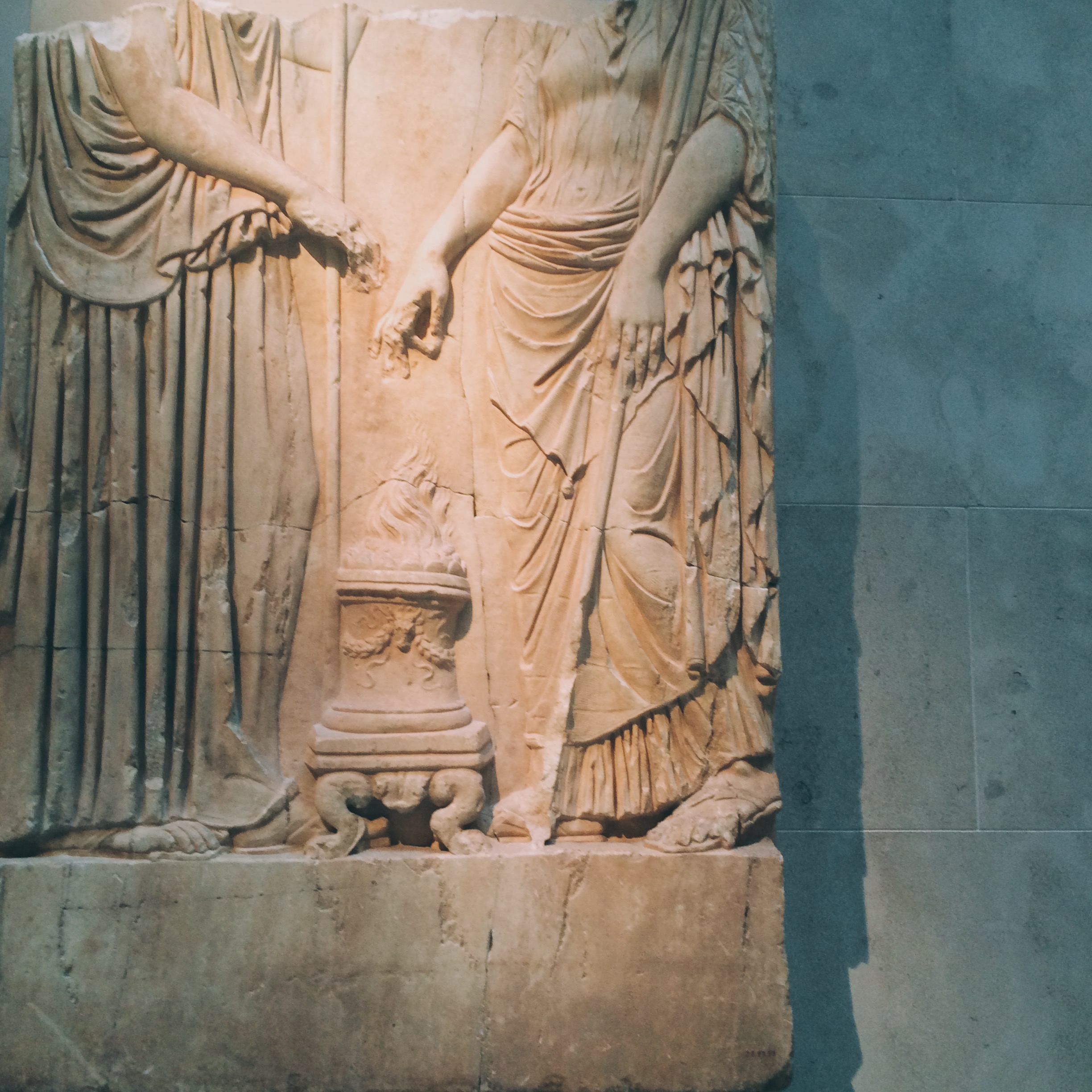 The end of the Spring Semester is rapidly approaching. Now is the time to plan for the upcoming academic year. Here are the graduate courses to be offered during the Fall Semester 2018. Stay tuned for the Spring offerings in the coming weeks! Continue reading
The end of the Spring Semester is rapidly approaching. Now is the time to plan for the upcoming academic year. Here are the graduate courses to be offered during the Fall Semester 2018. Stay tuned for the Spring offerings in the coming weeks! Continue reading
Comments Off on Announcing History Graduate Courses for Fall 2018
Filed under Grad Student News, New Course, Teaching
Rethinking Spanish Colonialism
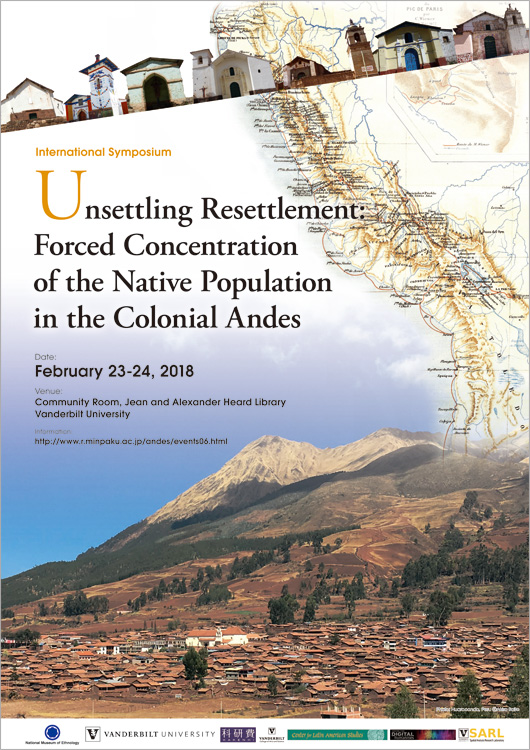 In February, Dr. Elizabeth Penry, Associate Chair for Undergraduate Studies in the History Department, participated in an international symposium, titled “Unsettling Resettlement: Forced Concentration of the Native Population in the Colonial Andes.” This international symposium co-sponsored by the Japanese National Ethnology Museum, Osaka and Vanderbilt University brought together a dozen scholars, including archeologists, anthropologists, and historians from Japan, Peru, Bolivia, Argentina and the US to meet at Vanderbilt University for three days. The multi-disciplinary project is re-examining and digitally mapping the sixteenth century resettlement by Spaniards of upwards of 1,500,000 indigenous Andeans. Continue reading
In February, Dr. Elizabeth Penry, Associate Chair for Undergraduate Studies in the History Department, participated in an international symposium, titled “Unsettling Resettlement: Forced Concentration of the Native Population in the Colonial Andes.” This international symposium co-sponsored by the Japanese National Ethnology Museum, Osaka and Vanderbilt University brought together a dozen scholars, including archeologists, anthropologists, and historians from Japan, Peru, Bolivia, Argentina and the US to meet at Vanderbilt University for three days. The multi-disciplinary project is re-examining and digitally mapping the sixteenth century resettlement by Spaniards of upwards of 1,500,000 indigenous Andeans. Continue reading
Comments Off on Rethinking Spanish Colonialism
Filed under book history, Faculty News, Publications
Fordham PhDs and Educating Future Educators
 Part of Fordham’s rigorous PhD program is its mandatory Teaching Tutorial. This class uses one-on-one training with a member of Fordham History’s professoriate to give PhD candidates valuable pedagogical training and classroom experience. The tutorial transitions PhDs from their first two years of coursework into their upcoming teaching assignments mandated by the PhD program’s funding package. We caught up with Michael Sanders, a PhD candidate who is finishing his second year at Fordham and recently completed his tutorial with Dr. Héctor Linda-Fuentes, to get his perspective on the experience.
Part of Fordham’s rigorous PhD program is its mandatory Teaching Tutorial. This class uses one-on-one training with a member of Fordham History’s professoriate to give PhD candidates valuable pedagogical training and classroom experience. The tutorial transitions PhDs from their first two years of coursework into their upcoming teaching assignments mandated by the PhD program’s funding package. We caught up with Michael Sanders, a PhD candidate who is finishing his second year at Fordham and recently completed his tutorial with Dr. Héctor Linda-Fuentes, to get his perspective on the experience.
Comments Off on Fordham PhDs and Educating Future Educators
Filed under Courses, Grad Student News, Teaching

